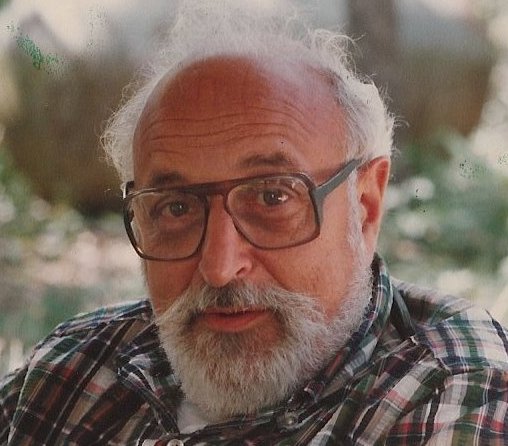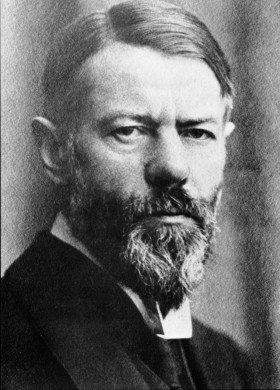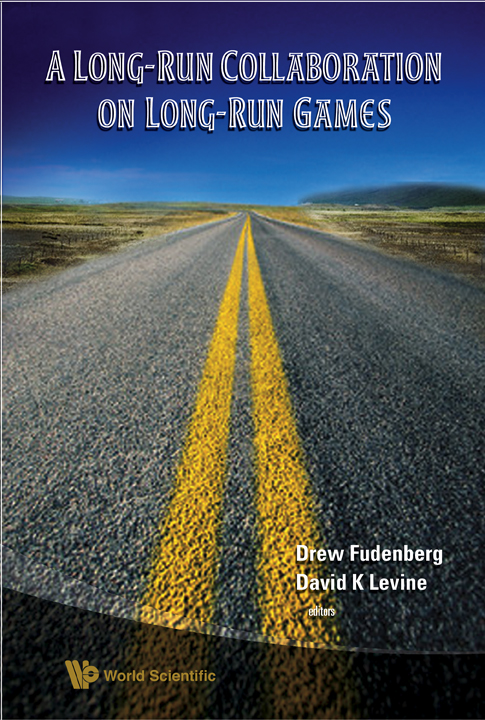
Economic
and Game Theory
News
 In Memoriam December 6, 2010 Robert A. Levine:
In Memoriam December 6, 2010 Robert A. Levine:

My father - a giant of a man and always my inspiration. For the moment you can find some information about him here. Slideshow from the memorial.
[Posted at 12/07/2010 07:15 AM by David K. Levine  ]
]
 In Memoriam July 29, 2010 Earl Thompson:
In Memoriam July 29, 2010 Earl Thompson:

Earl Thompson, economist: born October 15, 1938; Assistant Professor, Stanford University 1962-1965, Assistant Professor UCLA 1965-1969, Associate Professor, UCLA 1969-1973; Professor, Department of Economics, UCLA 1973; married 1961 Velma Montoya (one son); died Los Angeles 29 July 2010.
Thompson was an idiosyncratic but brilliant thinker, and his death marks the end of an era for UCLA: Thompson is the last of the economists brought to UCLA by Armen Alchian in the 1960s to create the famed UCLA school of economics.
Thompson's interests in economics were broad ranging. In recent years his goal was to provide an integrated theory of the vital institutions of society - a theory that tied together historical events with economic theory and politics. The basic elements of the theory were outlined in his 2001 book with Charles Hickson. The entire theory was to appear in the three volumes entitled A Reconstruction of Economics.
Thompson did not set out to be an economist. His ambition until his early twenties was to be a professional baseball player. Fortunately for us he fell to injury, so instead became an academic. He attended UCLA as an undergraduate where he studied under Armen Alchian who turned him towards economics, and while in his younger years he had been an indifferent student, he graduated with Honors in 1958. He attended the London School of Economics, then returned to Harvard for his Ph.D. under the supervision of John R. Meyer, becoming Harvard's youngest Ph.D. in Economics in 1961. His first longterm position was as an assistant professor at Stanford University. In 1965 he moved back to Los Angeles to UCLA, where he spent the bulk of his career.
Over that career Thompson published more than 40 articles, many in the top academic journals. He wrote on topics ranging from monetary theory to welfare economics. Always his focus was on the winners and losers from economic policy. In monetary theory he was profoundly skeptical of the influence of bankers on monetary policy - as we have recently been reminded, bankers look out for bankers' interests, not the interests of the rest of us. As recently as March Thompson was writing in the AmericanThinker.com explaining why the banker driven bailout and stimulus policies might benefit bankers, but would be of little use to the rest of us.
Thompson was also cognizant of the universal desire for monopoly. He was one of the first to point to collusion between unions and firms - unions are not subject to anti-trust laws. He gathered substantial evidence that in the coal industry strikes served to raise prices and increase profits by restricting output.
One of Thompson's most significant theoretical contributions was in the area of public finance. Conventional wisdom among economists is that taxing capital is a poor idea. Thompson pointed out that the national defense is one of the primary functions of government - and the beneficiaries are largely the owners of capital. Far from an inefficient drag on the economy, he argued, capital taxes are effectively a user fee, charging those that benefit the most from defense for its cost. That democratic institutions seemed to have found the right solution where economists had not made a profound impression on him.
Thompson made major theoretical contributions to the study of commitment in games - arguing that it has an empirical significance that is underplayed by economists and game theorists. In doing so, he demonstrated a formal mathematical version of what is sometimes known as the Coase Theorem: that without frictions an economy attains desirable outcomes even in the absence of competition. Where other economists focused on markets Thompson focused on the evolution of democratic political institutions, arguing that the democratic process tended to bring forth efficient policy compromises.
Thompson loved to work with students, although occasionally his classes met at odd times, such as Sunday afternoons. Many of his students became coauthors and lifelong friends.
In the early 1980s, while his wife Velma Montoya served in the Reagan White House, Thompson spent a year at the Federal Trade Commission in Washington. This gave him an opportunity to comment on and influence public policy: although a theorist Thompson had an enormously practical side and cared deeply about people and policy.
Thompson received numerous grants and awards to support his research, including from the UCLA Institute for Government and Public Affairs; the Ford Foundation; the Eli Lilly Foundation; the American Petroleum Institute; the Koch Foundation; the Foundation for Research in Economics and Education; and the National Science Foundation.
Earl Thompson was an eccentric in an age of conformity. He kept odd hours: he was alone in his office in Bunche Hall at 4:31 AM on January 17, 1994 when the Northridge earthquake hit, where he found himself unharmed but covered with fallen books. He loved muscle cars, dressed as if the 1950s were just yesterday, and always had a sneaky grin on his face. He will be missed by his colleagues, his students, his friends and his family.
[Posted at 07/30/2010 10:24 AM by David K. Levine  ]
]
 Risk and Uncertainty:
Risk and Uncertainty:
 [Posted at 06/17/2010 06:12 AM by David K. Levine
[Posted at 06/17/2010 06:12 AM by David K. Levine  ]
]
 The Economics Book Festival in Trento:
The Economics Book Festival in Trento:
 [Posted at 06/08/2010 06:13 AM by David K. Levine
[Posted at 06/08/2010 06:13 AM by David K. Levine  ]
]
 Is Economics a Science:
For a guy who thinks that methodological disputes are boring and that the proof of the pudding is in the eating, I seem to be getting in to a lot of them lately. First we had to listen to Paul Krugman spouting about how bad economics was when he was a graduate student. You can find a brief effort to bring him up to date on developments in the last three decades here. This led to a debate with philosopher of science Alex Rosenberg on bloggingheads tv. It's mostly an elaboration on my "Is Behavioral Economics Doomed" - although I'd have thought that the fact that the Keynesian theory that Paul likes was extensively examined for two decades and ultimately rejected because it was falsified would be evidence that economics is a science. I guess it isn't for Paul: for him Keynesian is an article of faith despite the fact it has been falsified.
[Posted at 10/05/2009 11:44 AM by David K. Levine
Is Economics a Science:
For a guy who thinks that methodological disputes are boring and that the proof of the pudding is in the eating, I seem to be getting in to a lot of them lately. First we had to listen to Paul Krugman spouting about how bad economics was when he was a graduate student. You can find a brief effort to bring him up to date on developments in the last three decades here. This led to a debate with philosopher of science Alex Rosenberg on bloggingheads tv. It's mostly an elaboration on my "Is Behavioral Economics Doomed" - although I'd have thought that the fact that the Keynesian theory that Paul likes was extensively examined for two decades and ultimately rejected because it was falsified would be evidence that economics is a science. I guess it isn't for Paul: for him Keynesian is an article of faith despite the fact it has been falsified.
[Posted at 10/05/2009 11:44 AM by David K. Levine  ]
]
 Rationality and Max Weber:
Rationality and Max Weber:
 | I recently presented a lecture "Is Behavioral Economics Doomed" at the European University Institute in Florence. It was part of a series of lectures in honor of Max Weber. Since a key issue in behavioral economics is the role of psychological phenomenon such as emotion in decision making, I was curious as to what Max Weber thought of this - Weber being a pioneer of what is now called rational choice theory. Kenneth Allan provides a nice summary of Max Weber's thinking on the topic.
This is similar to the distinction, for example, that Drew Fudenberg and I draw in our work on the dual self model . Indeed Max Weber's own words about the essential irrationality of that deepest of all emotions - love - is instructive
|
 ]
] In the media:
If you want media attention, working on sexy topics like behavioral economics apparently pays off...
[Posted at 03/12/2009 01:42 AM by David K. Levine
In the media:
If you want media attention, working on sexy topics like behavioral economics apparently pays off...
[Posted at 03/12/2009 01:42 AM by David K. Levine  ]
]
 A Long Run Collaboration:
A Long Run Collaboration:

A Long Run Collaboration on Long Run Games bringing together Drew's and my work on the subject from the early 1980s to the present.
[Posted at 01/20/2009 01:08 PM by David K. Levine  ]
]
 Economics:
A general purpose open-access electronic journal.
[Posted at 11/15/2008 12:56 PM by David K. Levine
Economics:
A general purpose open-access electronic journal.
[Posted at 11/15/2008 12:56 PM by David K. Levine  ]
]
 Chuck Norris, the bailout, and me:
A good man to have at your back:
The bail-a-holics Posted: October 06, 2008
by Chuck Norris
Chuck Norris, the bailout, and me:
A good man to have at your back:
The bail-a-holics Posted: October 06, 2008
by Chuck Norris
"Speaking of great minds not in government, I agree with David Levine, professor of economics from Washington University, who said, 'This seems to be a particularly bad bill. We have seen pretty clearly that all the bad things that were promised to happen if the bill didn't pass on Monday or on Tuesday or whatever particular day of the week it might have been, haven't happened, they are not going to happen, they are not going to happen next week, next month. I really wish that the chairman of Federal Reserve and the secretary, the treasurer were up there telling people that bad things are not going to happen, if they do happen they won't happen immediately. There is time to deliberate over a good plan. This is a bad plan; it got even worse since it was turned down by the House. There is very little to like in all of this.'"
[Posted at 10/06/2008 02:29 AM by David K. Levine  ]
]

